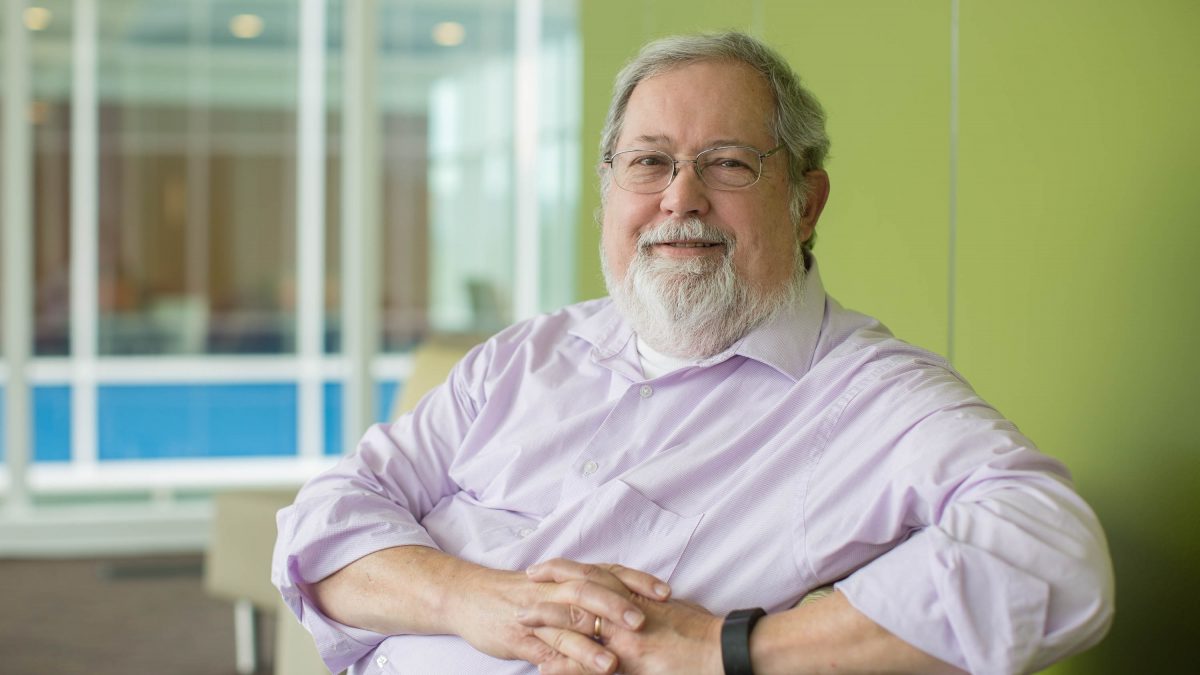As a child, Alicia Heald was easily distracted and had trouble paying attention. Her parents weren’t overly alarmed.
“With young kids, sometimes it’s normal,” her father, Allen Heald, a behavioral health supervisor at BlueCross BlueShield of Tennessee, explains.
But by second grade, Alicia struggled with schoolwork and multiple tasks challenged her – which was something Allen recalls dealing with as a child, too. So they took Alicia to her pediatrician and a neuropsychologist for evaluations, and she was diagnosed with Attention Deficit Hyperactivity Disorder (ADHD).
Working through his own ADHD diagnosis
After Alicia was grown, Allen noticed he also had a hard time keeping up with things. He remembers his teachers saying he was distracted as a child, and any electronics on in the background could easily prevent him from focusing on his homework. So he went to his doctor for an evaluation that confirmed he also had ADHD.
“Over the years, I’d developed coping skills,” he recalls. “I didn’t realize at the time I was just trying to get by.”
What is ADHD and what are the signs?

Dr. Jill Amos, behavioral health psychologist at BlueCross BlueShield of Tennessee
Dr. Jill Amos, a BlueCross behavioral health psychologist says ADHD covers two sets of behaviors:
- Some individuals can exhibit inattentive behavior
- Others may have inattentiveness with hyperactive tendencies like impulsive behavior, interrupting, or constant fidgeting.
Because these behaviors can be common for most children, Dr. Amos suggests:
- First observing if your child has difficulty following simple instructions (e.g. grabbing things without permission, rushing into activities, needing much more time or encouragement)
- Then, asking others how your child behaves in their care (teachers, caregivers, etc.)
Allen says Alicia’s teachers were working with her regularly to redirect her when she lost focus on a task. They even tried switching her to a different class, but she was still distracted.
“Our concern was always making sure she had the ability to learn,” says Allen. “The input from her teachers helped us understand she needed more help.”
What should you do if you notice these signs?
Dr. Amos says the next step is to see a pediatrician (or primary care physician if you’re an adult). That may result in a referral to a psychologist for evaluation and possibly treatment.
“Alicia’s physicians wanted to first try behavior modification before eventually starting medication,” explains Allen. “So, working on organizational skills and checklists became the norm for Alicia, but soon her grades improved as we worked with her to keep up a new routine and doctor visits.”
Now Alicia’s 33 with a family, and she wants to teach sign language. She’s already completed two years of classes at Chattanooga State in the sign language interpreter certification program.
What should you expect during an evaluation and treatment?
Dr. Amos says that during an evaluation, you can expect to be asked about things like:
- Current behavior and school work
- Death of loved ones, changes like divorce or separation, or other family problems
- Injuries, head trauma, or depression
Like in Alicia’s case, Dr. Amos says most treatment will start by trying to change the behavior first. If that’s not effective, medication could be the next step, but she says it’s important to understand the side effects of these medications and give them time to work.
“The recommended 30-day follow-up is critical, she explains. “Parents can get discouraged, so working closely with your child’s physician and mental health provider to make adjustments during this treatment is essential.”
What are the benefits of getting treatment?
Dr. Amos emphasizes that getting treatment for ADHD is important and can have many benefits, including:
- Reduced likelihood of high risk behaviors like substance abuse
- Decreased chance of delinquency
- Feeling more effective in school or at work
Many children will outgrow ADHD and can eventually stop medications, but it can last into adulthood. Like Allen, those diagnosed later in life often had behavior that was noted in childhood. A physician will look for past documented behaviors that could point to a diagnosis during an evaluation, so it’s important to speak to your doctor if you’ve had symptoms related to ADHD.
Learn more about ADHD at National Institutes of Mental Health or Centers for Disease Control and Prevention (CDC).
Get more information about specific health terms, topics and conditions to better manage your health on bcbst.com. BlueCross BlueShield of Tennessee members can access wellness-related discounts on fitness products, gym memberships, healthy eating and more through Blue365®. BCBST members can also find tools and resources to help improve health and well-being by logging into BlueAccess and going to the Managing Your Health tab.






WellTuned provides inspiration and practical advice for healthy living.
WellTuned does not offer medical advice. Any personal health questions should be addressed to your doctor.